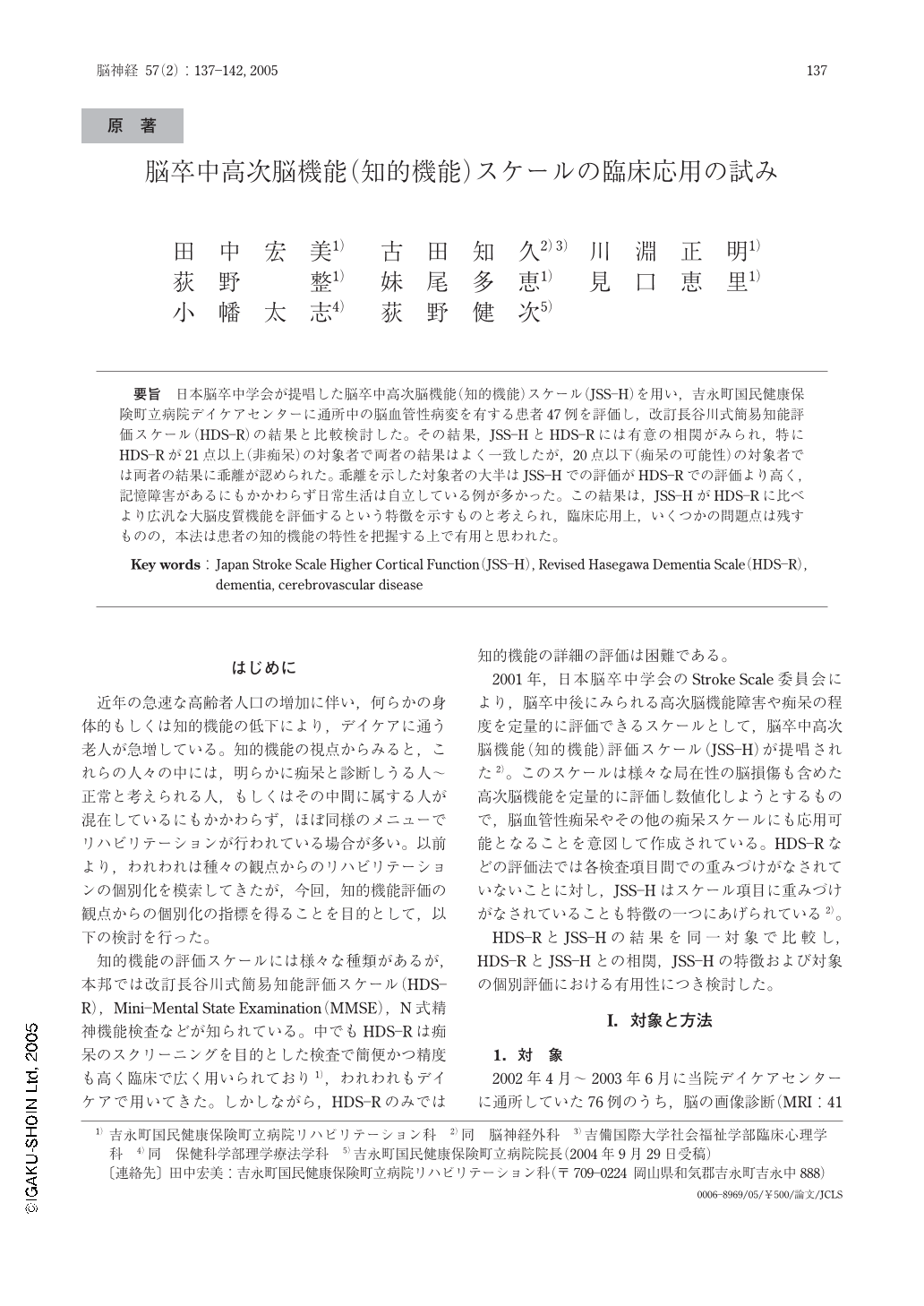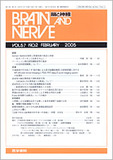Japanese
English
- 有料閲覧
- Abstract 文献概要
- 1ページ目 Look Inside
要旨 日本脳卒中学会が提唱した脳卒中高次脳機能(知的機能)スケール(JSS-H)を用い,吉永町国民健康保険町立病院デイケアセンターに通所中の脳血管性病変を有する患者47例を評価し,改訂長谷川式簡易知能評価スケール(HDS-R)の結果と比較検討した。その結果,JSS-HとHDS-Rには有意の相関がみられ,特にHDS-Rが21点以上(非痴呆)の対象者で両者の結果はよく一致したが,20点以下(痴呆の可能性)の対象者では両者の結果に乖離が認められた。乖離を示した対象者の大半はJSS-Hでの評価がHDS-Rでの評価より高く,記憶障害があるにもかかわらず日常生活は自立している例が多かった。この結果は,JSS-HがHDS-Rに比べより広汎な大脳皮質機能を評価するという特徴を示すものと考えられ,臨床応用上,いくつかの問題点は残すものの,本法は患者の知的機能の特性を把握する上で有用と思われた。
To clarify the characteristics of Japan Stroke Scale Higher Cortical Function(JSS-H), we compared the results of JSS-H with those of Revised Hasegawa Dementia Scale(HDS-R), on the 47 patients with cerebrovascular disease visiting to the day-care center of the Yoshinaga Municipal Hospital. The scores of the two scales significantly correlated. Especially, among the patients who gained over 21 points(non-dementia) in HDS-R, the results of both scales were almost parallel, but among those who gained less than 20 points(dementia), the scores showed some discrepancy. Most of the patient with discrepancy had higher scores in JSS-H than in HDS-R, and were independent in their daily life despite of their memory disturbance. These results suggest that JSS-H can assess more global cerebral function than HDS-R and will be useful for estimating the characteristics of the higher cortical function of the patients, although it has some problems to be solved for clinical application.
(Received : September 29, 2004)

Copyright © 2005, Igaku-Shoin Ltd. All rights reserved.


